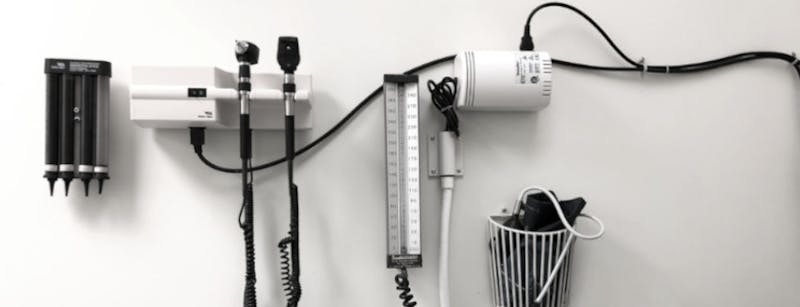What is Hashimoto’s?
Hashimoto’s Thyroiditis is an autoimmune condition where the body mistakenly attacks its own thyroid tissues. The destruction of the thyroid tissues is generally slow, and if caught early, can generally be successfully resolved with integrative medical strategies. However, Hashimoto’s is often misdiagnosed by traditional doctors, which allows the attack on thyroid tissues to continue for years. This is tragic because the thyroid and the hormones that the thyroid produces are crucial to good health.
The Main Functions of the Thyroid:
- The thyroid produces hormones that affect every cell in the body. These hormones regulate our metabolism and determine how much energy we produce from the food we eat.
- Thyroid hormones and our nervous system work together to control our body temperature.
- These important hormones are also involved in our blood sugar regulation, fat utilization, and our liver’s synthesis of cholesterol. Since all of our hormones are made from cholesterol, this is an extremely important function! It is also one reason that those with under-functioning thyroids and/or Hashimoto’s will have high cholesterol.
- The thyroid also determines how muscles develop and function, so athletes should take note!
- Thyroid hormones work with the parathyroid in one remodeling.
- Regulating digestion and motility. Thyroid hormones play a role in the secretion of crucial digestive fluids such as hydrochloric acid.
Symptoms of Hashimoto’s
- Fatigue
- Dry skin
- Hair loss and/or change in texture
- Weight gain
- Anxiety
- Depression
- Feeling cold all of the time
- Constipation
- Lack of sweating
- Facial puffiness
- Loss of outer third of eyebrow
Why do Traditional Doctors Misdiagnose Hashimoto’s?
Traditional doctors typically use only one biomarker when checking in on your thyroid: TSH. The problem with this strategy is that it is that TSH alone cannot determine if you have an autoimmune thyroid condition, nor can it determine many of the ways that your thyroid could be dysregulated. Your TSH can be “normal” while your thyroid is going haywire and causing you all sorts of uncomfortable symptoms! As you can see, this leads to many with Hashimoto’s unknowingly allowing the destruction of their thyroid tissues for years. By the time many get diagnosed, irreparable damage has been done.
Even when your TSH is not normal, a conventional doctor will typically just prescribe a daily synthetic thyroid hormone. While this may help reduce symptoms for some in the short term, the damage is still occurring because nothing is being done to stop the autoimmune attack on the thyroid.
What lab testing do I need to determine Hashimoto’s?
In order to determine if you have Hashimoto’s, your doctor should run a full thyroid panel. If your doctor will not run a full panel for you, then it is time for a new doctor! Blood testing is inexpensive and there is no reason not to do this. Functional doctors, Integrative doctors, and some Naturopaths will be sure to run a full panel for you.
Specifically, to determine if you have Hashimoto’s, your doctor needs know your TSH (thyroid stimulating hormone) and to test your thyroid antibodies. There are two antibody tests for thyroid autoimmune disease: TPOs (thyroid peroxidase) and TGBs (thyroid binding globulin).
Another important consideration when testing thyroid function is that a functional or integrative practitioner has a much tighter range that they consider acceptable for optimal health. The lab ranges that a traditional doctor uses are the range of all people tested for thyroid conditions at that lab. It doesn’t exclude unhealthy people!
Why a Two-Pronged Approach is Necessary to Resolving Hashimoto’s
Because both the immune system and the thyroid are involved in Hashimoto’s, both must be addressed to resolve this autoimmune thyroid disorder. Addressing one without the other, as is typical in conventional medicine, leads to symptoms that never resolve and usually worsen.
Immune:
On the immune side, the immune system needs to be calmed down. Great, you say, but how did it get excited in the first place? In the Autoimmune Fix, by Dr. Tom O’Bryan, he explains that for an autoimmune disease to develop, three things need to happen. First, there is a weak link genetically (in this instance, your thyroid). Second, there is a catalyst, an exposure to something toxic, an allergen or a sensitivity), and finally, there is intestinal permeability (aka leaky gut).
You have probably heard that over 80 percent of the immune system resides in the gut. Knowing this, it is easy to make the connection between problems in the gut and an overactive immune system.
Thyroid:
On the thyroid side, we have to be sure that your thyroid is getting all of the nutrients that it needs to do its job. First, we have to make sure you are ingesting these nutrients and then we have to make sure you are actually digesting and assimilating them so that your thyroid can use them.
10 Health Strategies to Balance Thyroid Hormones
- Support your digestion: First, always eat sitting down. No more eating in your car, or while you are working. You may want to add some vegetarian digestive enzymes to give your body a little temporary help breaking down your food. It may be necessary to add in some hydrochloric acid as well, but you should work with your functional medicine practitioner to do that.
- Add Probiotics: Adding beneficial bacteria in the form of fermented foods or probiotic supplements can be very healing to the gut. Beneficial bacteria actually protect the mucosal layer of your gut lining. A spore-based formula will actually survive the digestive tract to end up where you want them, your colon. Once there, they will crowd out the “bad” guys and create a hospitable environment for the beneficials. A functional medicine favorite is Megasporebiotic by Microbiome labs.
- Correct an iodine deficiency: Iodine deficiency is much more prevalent in the US than previously thought. (Source) There is less iodine in the soil and many processed foods have added chemicals that interfere with iodine uptake. Bromide is one of these and it’s commonly added to flour. Chlorine is another and it can be found in the water that we drink and bathe in. Fluoride is another halogen that disrupts iodine uptake. This is in many toothpastes and mouthwashes. So, even if you do eat enough iodine, there may be chemicals in your food, water, or environment that are inhibiting its absorption. Iodine is crucial to thyroid health and it controls metabolism in other endocrine glands. Supplementation with iodine should only be done under the care of a practitioner after a blood test confirms an iodine deficiency if an autoimmune condition is present. However, you can safely focus on eating foods high in iodine such as sea vegetables, grass-fed dairy, cod, shrimp, tuna, lima beans, pastured eggs, and prunes.
- Make sure you are getting enough Selenium: Selenium is needed for the body to absorb iodine. Therefore, a selenium deficiency could lead to an iodine deficiency even if adequate iodine is being consumed. It is not recommended to supplement with selenium unless under the care of a practitioner. However, getting enough selenium is as easy as eating one Brazil nut a day! Don’t like Brazil nuts? Other high selenium foods include
- Add Magnesium: This mineral is also needed for proper thyroid function because it is needed for the conversion of active thyroid hormones. It is also needed for your body to put out enzymes. Supplementing with magnesium is safe to do without testing for deficiency since it is estimated that about 70% of the population are deficient! As a bonus, by supplementing with magnesium, you may find yourself more relaxed and sleeping better as well. Be sure to choose a form of magnesium that is easy for the body to absorb, like magnesium malate or magnesium glycinate. Foods that are high in magnesium are leafy greens, nuts, seeds, avocados, chocolate, bananas, and fatty fish.
- Supplement with Zinc: Zinc is another important mineral for thyroid hormone production since it is needed for the body to produce hydrochloric acid (HCL). If you don’t have enough hydrochloric acid, your body cannot break down your proteins nor cleave the minerals from your food for use in important bodily functions. If you have a zinc deficiency, it is safe to supplement until you are sufficient. Zinc carnosine is a great option as it is healing to the intestinal tract as well (1).
- Support adrenal health: If your body is using all of its hormone resources to make stress hormones, it will not have enough to make your thyroid and reproductive hormones. Make sure to sleep and to manage your stress. This may mean saying no to more things, or taking up yoga or meditation. An integrative or functional practitioner can order an adrenal panel for you to see if you have an imbalance in your stress hormones and then create a protocol to help regain balance.
- Remove food sensitivities: Diets such as Autoimmune Paleo and the Wahl’s Protocol are elimination diets that have helped thousands reverse their autoimmune disorders. Another option is to get a food sensitivity test done by your integrative or functional practitioner. In this way, you will only be eliminating the foods that your body is reacting to.
- Detox your life: Get rid of plastics containing endocrine disruptors, get rid of toxic cleaning products, banish synthetic fragrances with their hormone disrupting chemicals. Make sure there is no mold in your home. Remove any possible triggers (or catalysts as Dr. Tom calls them), so that your body can focus its energy on healing.
- Try Low dose naltrexone: Your integrative doctor may offer this as an option for calming the overreactive immune response. There are many studies showing that this is an effective treatment for Hashimoto’s as well as other autoimmune conditions. (2) (3).
Call today for a free 15-minute discovery call to learn how we can help you look and feel your best. You’ll have a chance to ask us anything about what we do, including our testing process, how we help address your unique concerns, and what your experience will be like at BODY by AIM360™. We look forward to getting to know you and helping you improve your quality of life and achieve your goals!
https://www.ncbi.nlm.nih.gov/pmc/articles/PMC1856764/
https://pubmed.ncbi.nlm.nih.gov/29885638/
https://www.ncbi.nlm.nih.gov/pmc/articles/PMC3962576/

